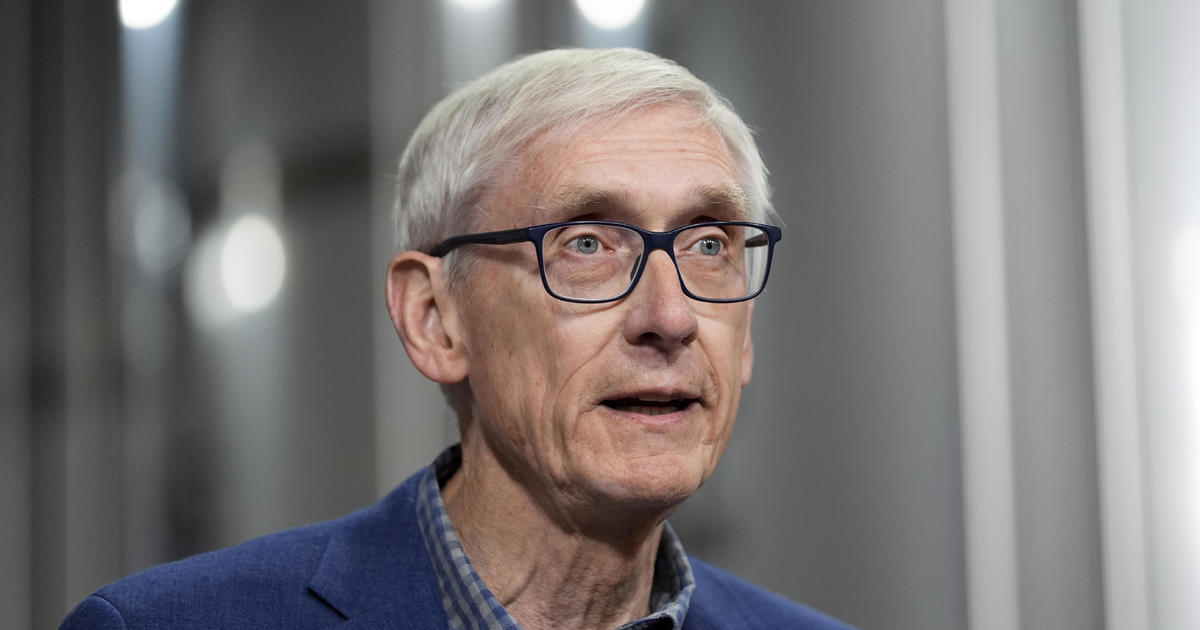Mayo Vies For $500M In Public Money For Expansion
ST. PAUL, Minn. (AP/WCCO) — The Mayo Clinic, Minnesota's largest private employer, pressed state lawmakers Wednesday to commit more than $500 million toward an ambitious development project tied to the renowned medical center in Rochester.
MORE: Rochester Reacts To Mayo Plan
The proposal outlined by Mayo officials includes projections that the publicly aided expansion will lead to as many as 45,000 new jobs around the state during the next 20 years and leverage more than $5 billion in private investment. They're calling it the Destination Medical Center plan.
It focuses on upgrading Mayo's research and care facilities and on giving its mid-sized host city amenities that make it more attractive to physicians being recruited and to the patients who come from across the globe for treatment.
Dr. John Noseworthy, Mayo's president and chief executive officer, said in an interview with The Associated Press that the medical center can't afford to stand still at a time when peer clinics are forging ahead with significant expansions. Johns Hopkins in Baltimore recently completed a $1.1 billion expansion.
"Medicine is growing faster and science is moving faster and Minnesota needs Mayo Clinic to be at the cutting edge of it. That's why we want to make these investments, hopefully in this state," Noseworthy said.
He worked to head off suggestions that Mayo was seeking a government handout.
All told, the plan envisions a public cost of $585 million, some the responsibility of the city and some falling to the state.
The state's contribution would come in the form of diverted tax dollars. A percentage of new tax revenues expected to flow from the expansion would be earmarked to repay public bonds that Mayo says are needed to do environmental remediation, allow for utility work and enhance roads, bridges and public meeting space. Not all the public borrowing would be done at once but as the expansion reaches various phases.
Gov. Mark Dayton appeared at a news conference with Noseworthy, who also gave private briefings to leading lawmakers. The Democratic governor praised the goal of the expansion but stopped short of endorsing the means.
"I don't know if this is exactly the right financing mechanism," Dayton said. He said he can't promise Mayo the funding package it wants, but suggested it will be a "mistake" if the legislature "doesn't."
"I would say it is the platinum jewel in our social and economic crown," Dayton said.
And Mayo's future could rest on two Republican senators from Rochester, whose job it is to convince democrats in the majority that it's a good idea.
Senate Majority Leader Tom Bakk, DFL-Cook, said the proposal would take time for lawmakers to digest.
"That's a pretty big new precedent that will require significant discussion and deliberation at the Legislature," Bakk said, who added that lawmakers may convene a special working group to scrutinize the proposal.
Noseworthy said Mayo is counting on action this session, which is due to conclude in May.
"We need to know if the state's behind us or not," he said. If not, he said Mayo would weigh whether to concentrate its expansion elsewhere.
Mayo currently employs 32,000 people in the state. Under its project estimates, the clinic's workforce would almost double by the time the build-out is fully completed. Many would come in science, technology and medical industries.
Over the years, Minnesota has authorized thousands of so-called tax increment financing plans that capture property tax money derived from a development to repay some construction costs. The Mayo plan goes further by taking a slice from income, corporate and state sales taxes, too. It also relies on city tax revenues from a local sales tax that Rochester voters authorized in November.
Lawmakers must consider whether other communities and companies would expect the state to replicate the Mayo's novel financing idea on their own expansion projects.
Republican Sen. David Senjem of Rochester, a former Mayo employee, said his colleagues need to understand the uniqueness of the institution.
"It's going to take a fair amount of heavy lifting," Senjem said. "We are going to work collectively as a Legislature to make sure this asset stays here and grows here."
As part of the venture, Mayo intends to invest about $3.5 billion for improvements on its Minnesota campus. The other $2 billion in contemplated private investment would come through spinoff developments, such as research labs for companies that serve Mayo.
Clinic officials say the medical facility is only part of their vision. They see it as a magnet for luring more lodging, retail and cultural attractions to Rochester, which in turn would help Mayo market itself as it competes with top-flight clinics in more cosmopolitan settings worldwide.
The clinic is a premier research and treatment center that grew out of a Mayo family medical practice started in Rochester in 1863. Today, Mayo has more than 58,000 doctors, nurses, scientists, students and allied health staff in the Midwest and locations in Arizona and Florida. But Rochester, a city of about 100,000 people about 90 minutes south of Minneapolis, has remained its flagship.
Presidents, kings, sheiks and U.S. congressmen have been among the clinic's roster of patients over the years, some receiving care for rare ailments. Mayo's clinics serve more than 1.1 million patients annually.
At the news conference, business and labor executives stood shoulder to shoulder in support of the proposal. Bill Blazar, a senior executive at the Minnesota Chamber of Commerce, urged legislators to get on board with a proposal that "secures the position of the Mayo Clinic on the world's medical map."
(TM and © Copyright 2013 CBS Radio Inc. and its relevant subsidiaries. CBS RADIO and EYE Logo TM and Copyright 2012 CBS Broadcasting Inc. Used under license. All Rights Reserved.This material may not be published, broadcast, rewritten, or redistributed. The Associated Press contributed to this report.)



